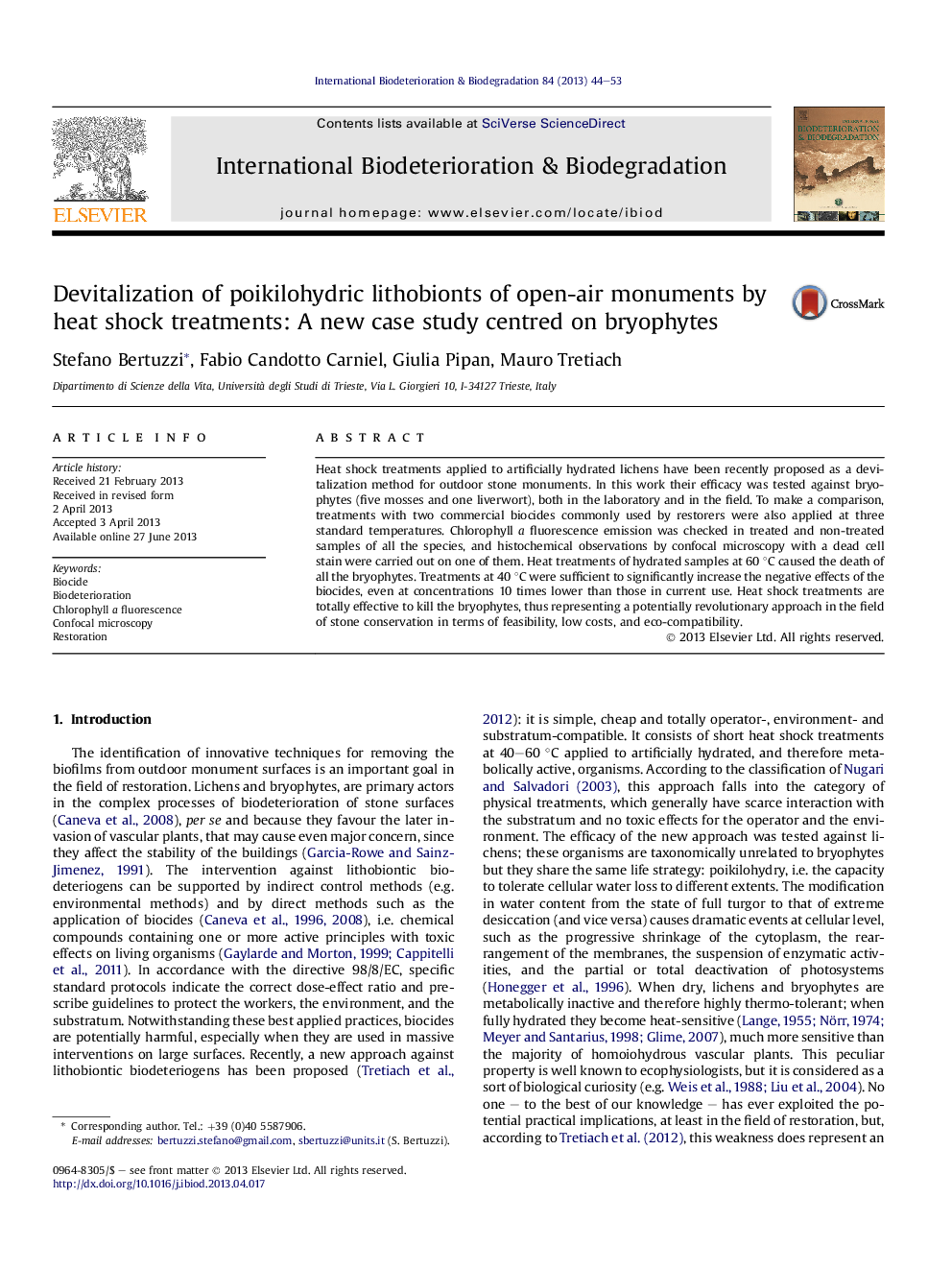| Article ID | Journal | Published Year | Pages | File Type |
|---|---|---|---|---|
| 6289425 | International Biodeterioration & Biodegradation | 2013 | 10 Pages |
Abstract
Heat shock treatments applied to artificially hydrated lichens have been recently proposed as a devitalization method for outdoor stone monuments. In this work their efficacy was tested against bryophytes (five mosses and one liverwort), both in the laboratory and in the field. To make a comparison, treatments with two commercial biocides commonly used by restorers were also applied at three standard temperatures. Chlorophyll a fluorescence emission was checked in treated and non-treated samples of all the species, and histochemical observations by confocal microscopy with a dead cell stain were carried out on one of them. Heat treatments of hydrated samples at 60 °C caused the death of all the bryophytes. Treatments at 40 °C were sufficient to significantly increase the negative effects of the biocides, even at concentrations 10 times lower than those in current use. Heat shock treatments are totally effective to kill the bryophytes, thus representing a potentially revolutionary approach in the field of stone conservation in terms of feasibility, low costs, and eco-compatibility.
Related Topics
Life Sciences
Environmental Science
Environmental Science (General)
Authors
Stefano Bertuzzi, Fabio Candotto Carniel, Giulia Pipan, Mauro Tretiach,
